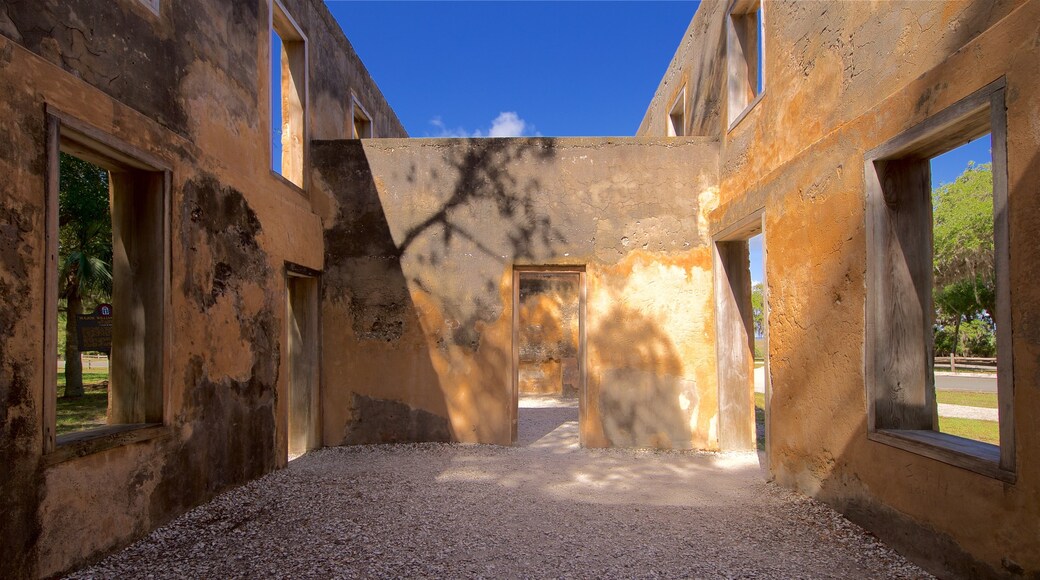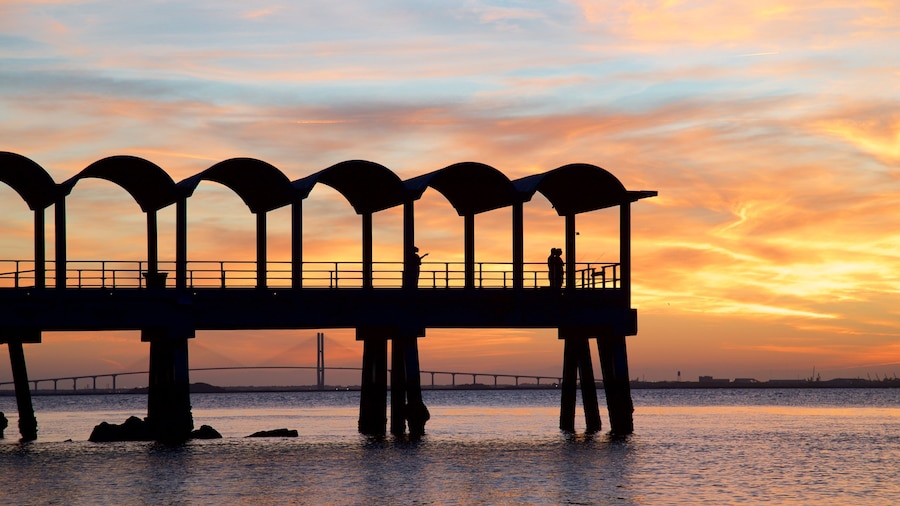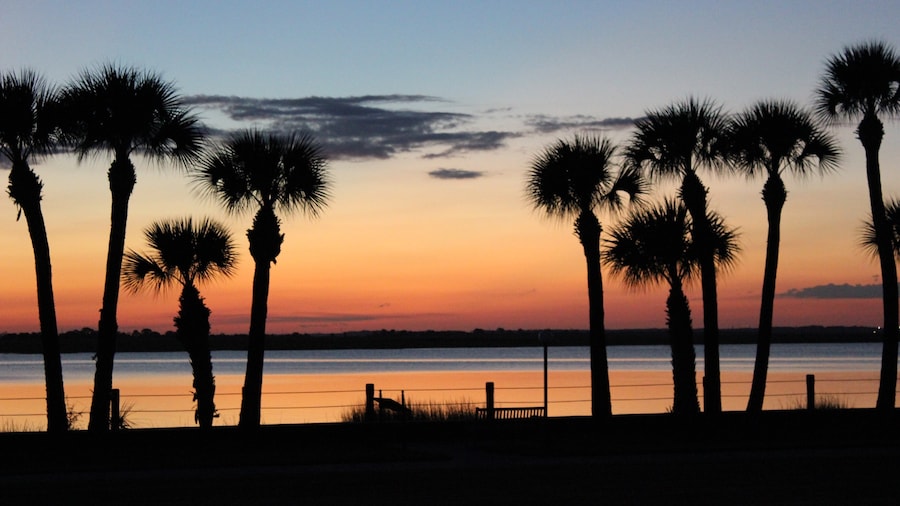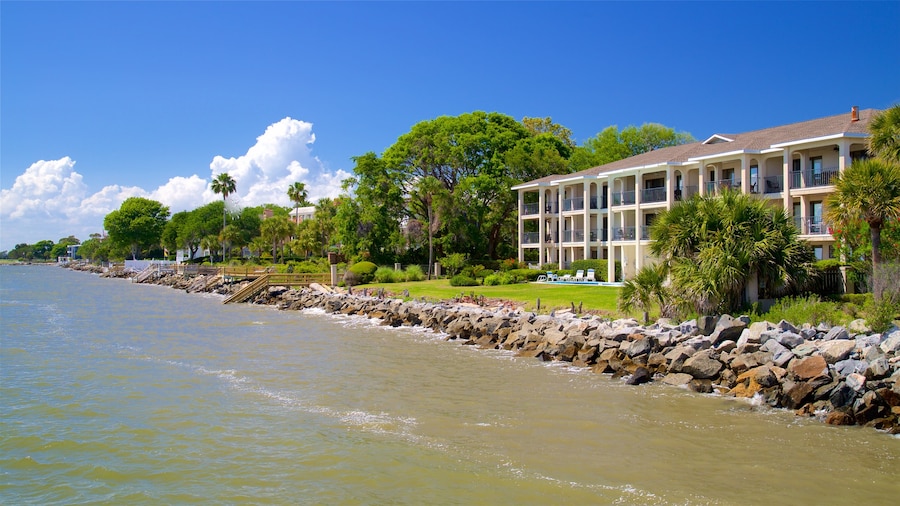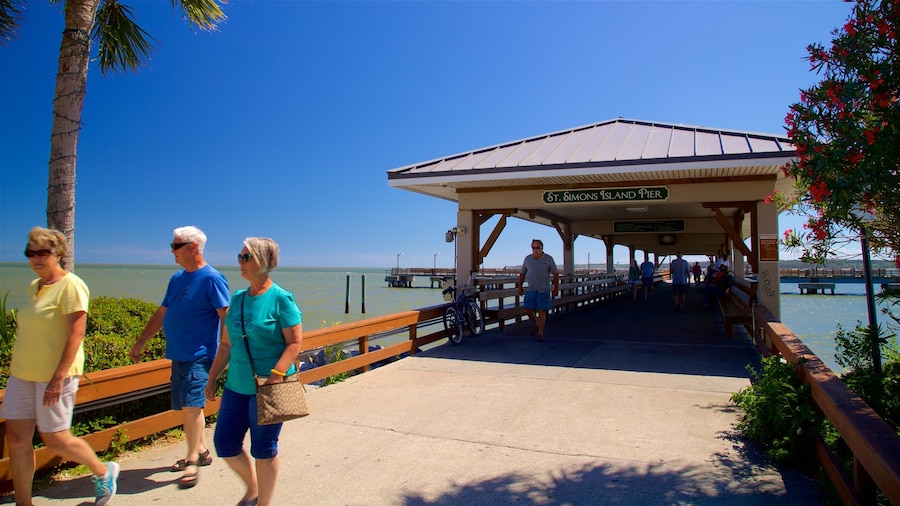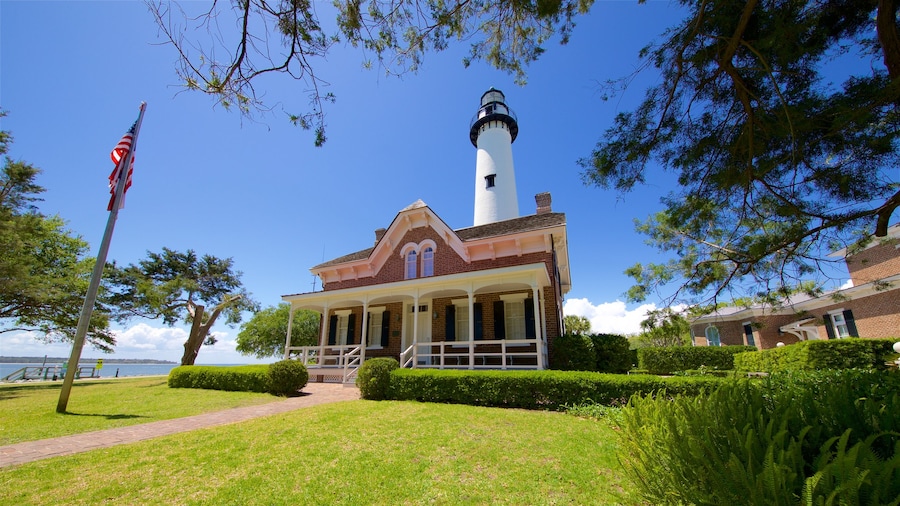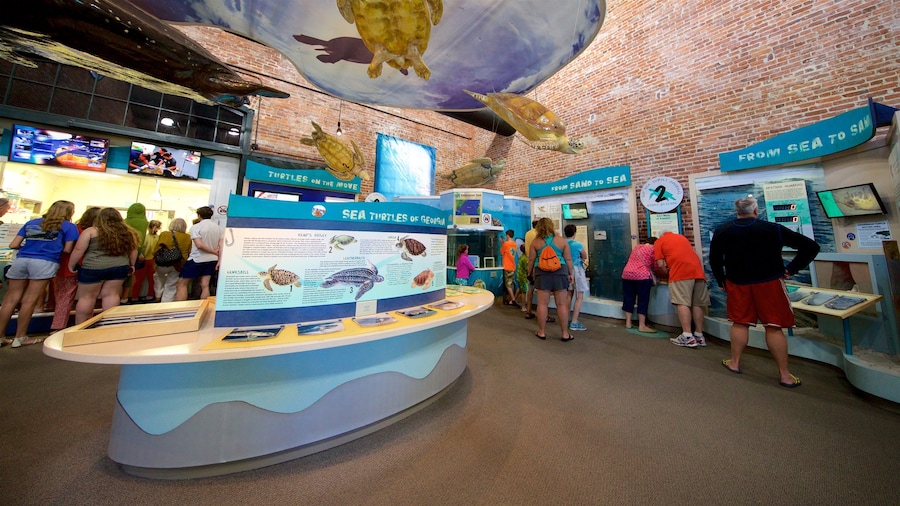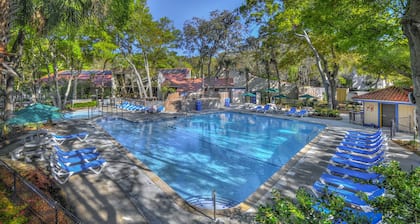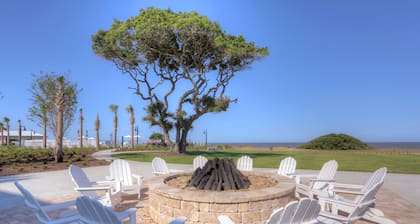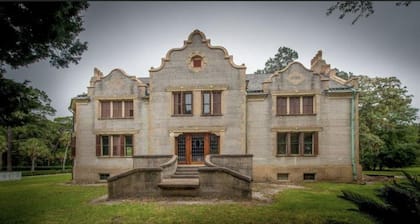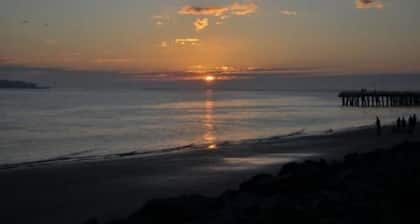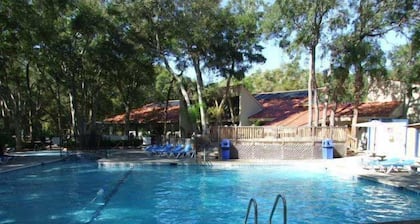Horton House is a superb colonial-era ruin and one of the oldest surviving buildings in Georgia. Listed on the National Register of Historic Places, the old house embodies some of Georgia’s captivating colonial history. Check out the building’s preserved tabby architecture and explore the site’s interpretive markers.
The house stands within pretty woodland. As you approach the old building, note its ruined state. Only the four external walls remain, so daylight streams in through the open roof and empty windows. The tabby house was constructed in 1743 by Major William Horton, one of General James Oglethorpe’s chief military aides. Horton cleared the land and sowed hops and barley to produce Georgia’s first beer. Try to find the remains of the brewery, located a short distance down the road.
Wander around the old building, noting its solid structure and mottled tabby walls. Tabby is a concrete-like material used by colonialists in the 18th and 19th centuries. The material was made by burning oyster shells to make lime, which was mixed with sand and water. Read the interpretive signs that tell the story of Horton House. The original house was burned down by Spanish troops and rebuilt as the structure that stands in ruins today.
Learn about the du Bignon family, who moved into the house after the American Revolution. Sea island cotton was produced on the estate’s plantation until 1886, when the land was sold to the Jekyll Island Club. Stroll along the pathways that loop around the house and make your way to the du Bignon family’s cemetery, located across the road from the house. From here, enjoy beautiful views of the Marshes of Glynn.
Horton House is located north of Jekyll Island’s historic district. The historic site is free to visit and open daily. Add Horton House to your cycling tour of Jekyll Island or park your car on the roadside nearby to access the site.
